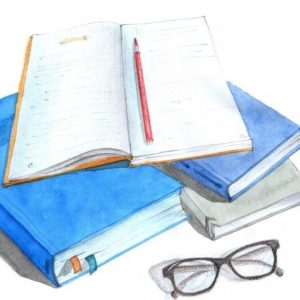I was born in Bucharest, Romania, and learned English when I was 11 years old. Two decades later I became a freelance English editor.
Who needs freelance English editors?
When I was a fledgling research scientist, I didn’t know there was such a thing as a freelance English editor or proofreader. Only publishers had copyeditors and proofreaders on staff, I thought. Research scientists who had manuscripts in need of revision didn’t hire freelance English editors. They asked a colleague whose first language was English to review their drafts. That’s what people around me were doing. I didn’t. I should have.
It was 2004, and I was struggling to publish my first research paper in an academic journal. The first time I submitted my manuscript, it was rejected, and rightfully so: it was a mess. The language was unpolished, the text was repetitive, and there were awkward phrases and even blatant grammatical mistakes. After one of the co-authors of my paper proofread the manuscript, we resubmitted it. It was accepted, but it came back with red ink all over—more corrections were needed. The publication process was long and frustrating. It took years. Yes, years. When the paper was finally published, I felt like an impostor. My manuscript had been through so many revision rounds that it didn’t even resemble my first draft.
Writing is hard
Several years later, when I moved to Wales to pursue a PhD, I discovered it wasn’t uncommon for postgraduate students to struggle with academic writing. And, more importantly, writing seemed to be equally difficult for native and non-native English speakers. It felt like a revelation. But others had known this for a long time. The campus was dotted with flyers promoting English editing and proofreading services: “freelance English editors for hire”, “experienced proofreaders for dissertations”, “help for thesis proofreading”, “proofreading your thesis or dissertation”—the flyers said.
I didn’t hire a freelance English editor or proofreader to proofread my drafts, because I felt I had to do it myself if I wanted to improve my writing. Had I known what a professional language editor or proofreader does, maybe I would have asked for help.
One idea per paragraph
As a first-year PhD student, I did everything I thought would improve my English writing skills (though I still didn’t hire a freelance English editor): read books, took courses, and wrote as much as I could—literature reviews, reports, summaries, emails, and letters. I rewrote, revised, edited, proofread, and wrote more. One day, my PhD advisor said, “You write better than some of my British students”. I was on top of the world!
But then I rested upon my laurels.
Several months later, my advisor gave me the verdict: the paper I’d been working on for about half a year was rubbish! I was heartbroken, trying to hold back my tears, thinking about quitting my PhD. After all the work I’d put into it, it wasn’t good enough! I wasn’t good enough!
But my advisor also explained what was wrong with the paper and how I could fix it. “One idea per paragraph”, he said. He asked me to write the main idea of each paragraph in the page margin. If ideas overlapped, I needed to revise the paragraphs to remove repetition. If ideas didn’t flow well, I had to reorder the paragraphs to improve logic.
This was my first editing lesson—and the best writing advice I’ve ever been given. Thanks to it, things got better: My papers were accepted for publication with minor revisions, and I wrote my PhD thesis in three months, enjoying every minute of it. My thesis is not flawless prose, and the errors in the final version will be mocking me forever, but at least writing wasn’t hard anymore. And editing was no longer a time-consuming chore. It was pretty fun!
Taking the leap: Becoming a freelance English editor and proofreader
During my PhD studies I wrote and edited a lot of texts, and I graduated confident in, and proud of, my writing and editing skills. Practice makes perfect, but only if it comes with timely and constructive feedback from experts.
And during my time in the UK, I was lucky to receive a lot of constructive feedback: from my advisor, other staff members, colleagues, and the peer reviewers of my papers. Being confident in my English writing skills gave me the courage to try to help others improve theirs.
The year I was awarded my PhD in Earth Sciences from Cardiff University was the year I steered away from geology. I got my first job as a freelance English editor on Upwork (then oDesk) and decided to earn a living as a freelance language editor and proofreader.
Because I’ve learned a lot in the past four years, and I keep learning, it’s time I shared some editing and writing advice with others who may need it.
Hence I’ve set up this blog. I’m the author of all posts; the images, unless otherwise specified, are courtesy of Diana Neagu.
Related posts:
- Things I’ve learned from eight years of freelance editing
- Why I worked as a freelance editor on Upwork and why I quit two years ago
- Academic editing tips I wish I knew as a research scientist
Last revised on 13 June 2022

